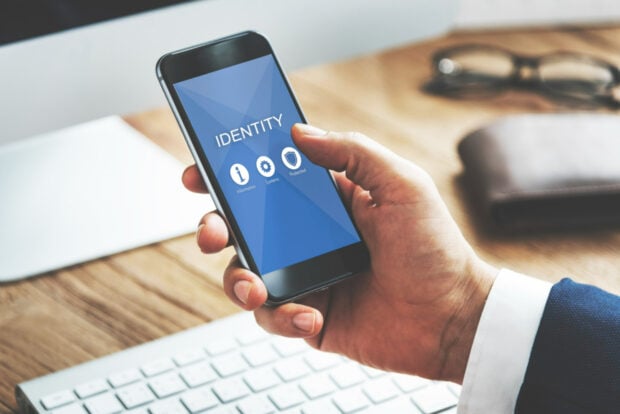Pakistan to launch digital ID wallet this year

Pakistan’s National Database and Registration Authority (NADRA) is planning to roll out a digital identity wallet later this year in a move that will end the need for physical ID.
NADRA is tasked with digitising all citizen data in the country, which – with more than 220 million citizens – is the fifth biggest in the world in terms of population.
As part of a digital push aimed at generating benefits including greater financial inclusion, the authority is working on a significant evolution of the existing ‘Pak-ID’ smartphone app – which was itself only introduced seven months ago, the authority’s chairman Tariq Malik told Pakistani media Dawn.
Launched last September, Pak-ID allows citizens to apply for a physical ID card remotely by using their Android or iOS device to scan documents and biometric data including their fingerprints and take a picture to verify their identity. When it was introduced, NADRA proclaimed that Pakistan had become ‘the first country in the world to introduce ID technology’. Two weeks later, the authority launched a similar biometric verification service for the banking and payments industry. With five banks initially participating, the service enables customers to open bank accounts and undertake biometric authenticated financial transactions using a mobile phone camera.
Related content: Eight countries set out principles for the future of digital ID
Hailing Pak-ID’s debut, prime minister Imran Khan called the app “a revolutionary step in providing convenience, especially to overseas Pakistanis”. It seems these ex-pats have at least partly driven the decision to launch the digital identity wallet by updating the Pak-ID app. “In a short span, 75,000 overseas Pakistanis have processed their national identity cards from the comfort of their homes by using the app,” Malik told Dawn. “With successful testing on 75,000 overseas Pakistanis, NADRA will go for a digital wallet.”
The wallet would be “a leap forward putting an end to the conventional physical ID” and is to be made available “later this year”, Malik said. “The digital dividends of such technology innovation will yield positive results in contactless banking, financial inclusion, ease of doing business and e-governance initiatives by offering remote identification and e-KYC [know-your-customer procedures].”
Focus on unregistered citizens
As of January, 96% of Pakistan’s adult (above 18) population, have a Computerised National Identity Card (CNIC), according to Islamabad-headquartered NADRA. Pakistan started rolling out its Smart National Identity Card (SNIC) in 2012 in a programme overseen by NADRA and aimed at replacing CNICs. Currently, both types of cards remain valid.
Recently, NADRA has focused on unregistered individuals (citizens without an identity card) by creating an ‘Inclusive Registration Department’. Its aim is to enhance registration, especially for women, minorities, transgender and unregistered persons. The agency targeted 80 districts with a gender gap of more than 10 per cent in registration figures. Eighteen female-only NADRA centres were opened to overcome socio-cultural barriers of women cautious about dealing with male staff. Additionally, 262 mobile registration vans and 80 ‘ManPack’ mobile units have been deployed countrywide for people living in remote areas or senior citizens who may struggle to travel. In total there are more than 700 registration centres operating countrywide and in all 154 districts of Pakistan. According to a NADRA press notice issued last month, the gender gap has been reduced by 40% in targeted districts.
NADRA says it holds the largest biometric database of citizens in the world. The security of such a stock of citizen data is clearly important but the authority states that its SNIC is equipped with 36 security features, using a layering system to safeguard sensitive information.
Principles for interoperable ID
Pakistan’s move comes against the international backdrop of high-level principles to support the development of mutually recognised and interoperable digital ID systems and infrastructure having been drafted by a working group on digital identity comprising representatives from eight countries.
The 11 principles call for digital ID infrastructure to be open; transparent; reusable; user-centric; inclusive and accessible; multilingual; secure and private; technologically neutral and compatible with data portability; administratively simple; able to preserve information; and effective and efficient.
In its report, the Digital Identity Working Group (DIWG) said its goal is to enhance trade agreements and to ‘facilitate economic recovery from Covid-19, for example to support the opening of domestic and international borders’.
Established in 2020, DIWG comprises Australia, Canada, Finland, Israel, New Zealand, Singapore, the Netherlands and the UK. It is chaired by Australia’s Digital Transformation Agency.
This story was first published by Global Government Forum’s sister title, Global Government Fintech: Pakistan to launch digital ID wallet this year
Further reading: Global Government Fintech’s ‘ID Verification’ section
Pakistan’s fintech sector: momentum building towards a “jump-start”
EU presents plan for bloc-wide digital ID wallet
Pakistan launches instant payments system to aid digitalisation and disbursements


















